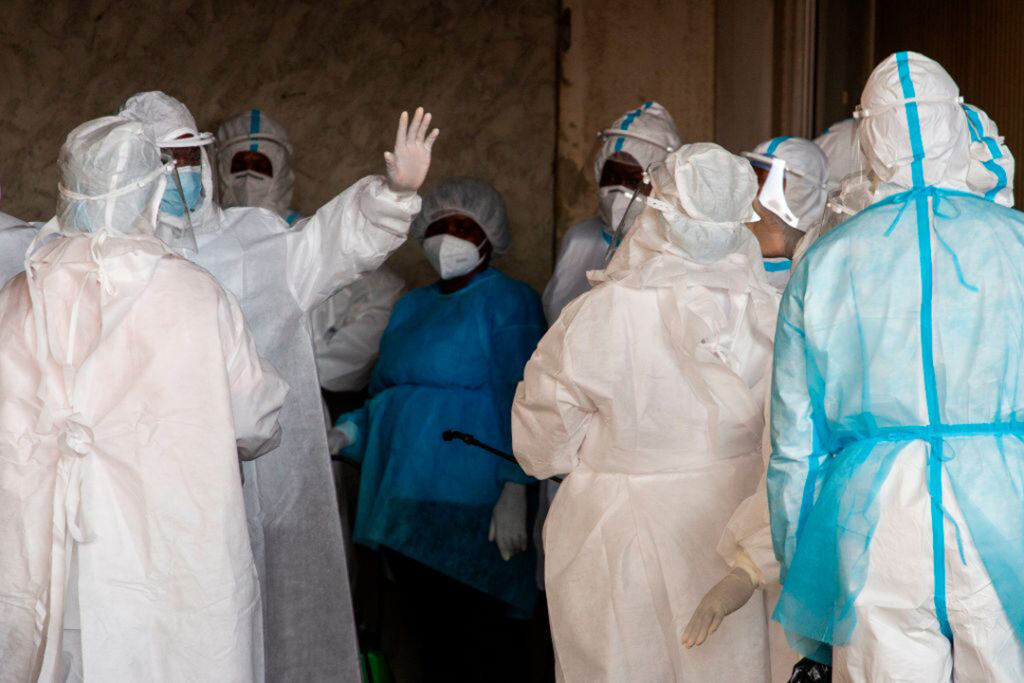ADF STAFF
The U.S. government donated $150,000 worth of personal protective equipment (PPE) to the Military Health Services Directorate in Angola in March, part of the $38 million in assistance the U.S. has given the country in its battle against COVID-19.
Tulinabo Mushingi, U.S. ambassador to Angola and São Tomé & Principe, said the March 30 donation is the latest example of a long partnership between the two countries.
“The U.S. Department of Defense has funded various projects in medical community to include the donation of a field hospital open to all patients, COVID-19 test kits, and training courses for first responders,” Mushingi said during a handover ceremony. “This is a partnership that has ranged nearly 20 years and began with assistance in controlling and treating HIV/AIDS.”
When Angola was in the grips of a deadly third wave of COVID-19 in August 2021, the U.S. donated 1,900 real-time reverse transcription polymerase chain reaction (RT-PCR) test kits to Angola’s Main Military Hospital in Luanda. The kits help increase testing capacity while reducing the amount of time a patient had to wait for a result.
The U.S. donated the test kits through a grant program focused on humanitarian assistance to Angola. It is part of the U.S. government’s more than $38 million worth of assistance to Angola through resources, training and institutional capacity building.
As Mushingi noted at the PPE handover ceremony, Angola’s COVID-19 infection rates leveled out throughout March. Angola maintained most of its current preventive measures, including the mandatory use of a face mask on public roads, markets and closed places.
“While we may be seeing an overall reduction of COVID-19 cases here in Angola and the rest of the world, we must remain prepared against the resurgence of other variants,” Mushingi said.
Health experts in Angola are divided on whether the country had hit the post-pandemic phase.
Pulmonologist Francisco Magalhaes told Voice of America (VOA) that improved infection numbers were thanks to “civic education of our population.”
Hospital manager and professor Nelito Barros said he considered the situation stable, but told VOA that “we cannot declare that we are in a post-pandemic phase.”
Francisco Furtado, the minister of state and head of the Military House, announced the easing of some preventive measures due to the small number of new cases in March. He said 97% of new COVID-19 cases that month were in asymptomatic patients.
Furtado warned that “some relaxation and indiscipline in the use of the face mask in the markets and even on the public road was notorious.” He added that “the pandemic is not over yet and we have to oblige to use” face masks, VOA reported.

